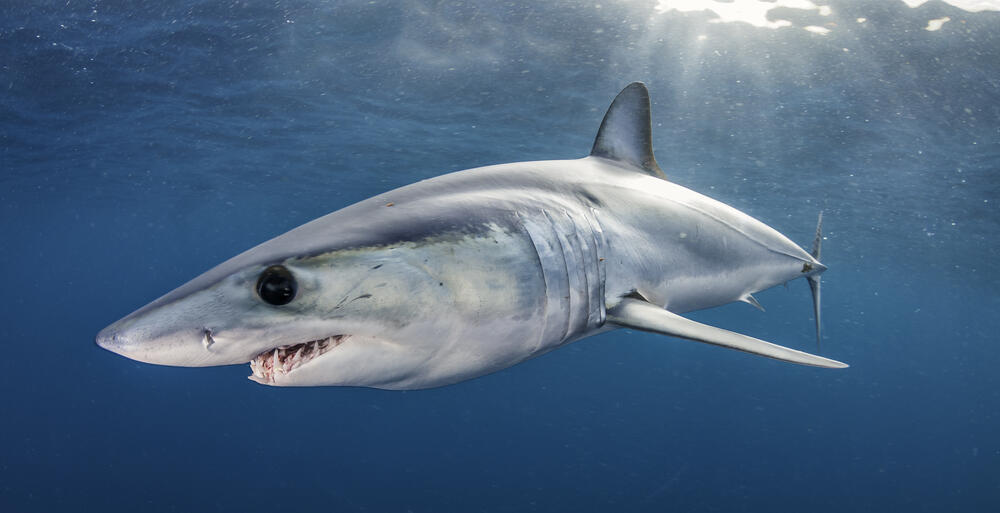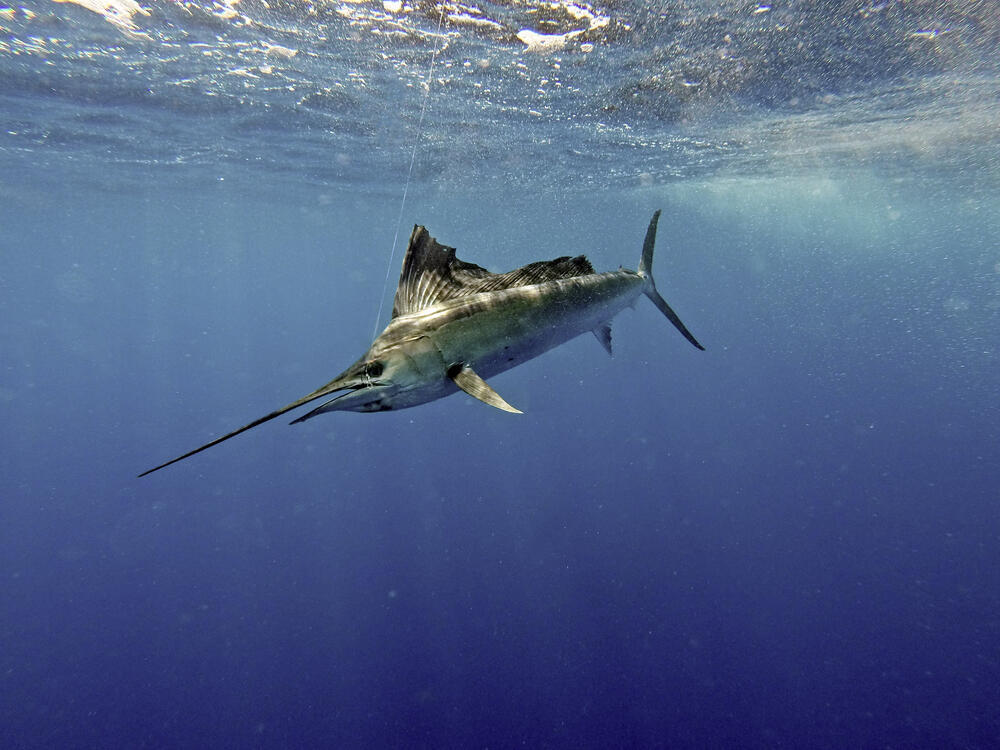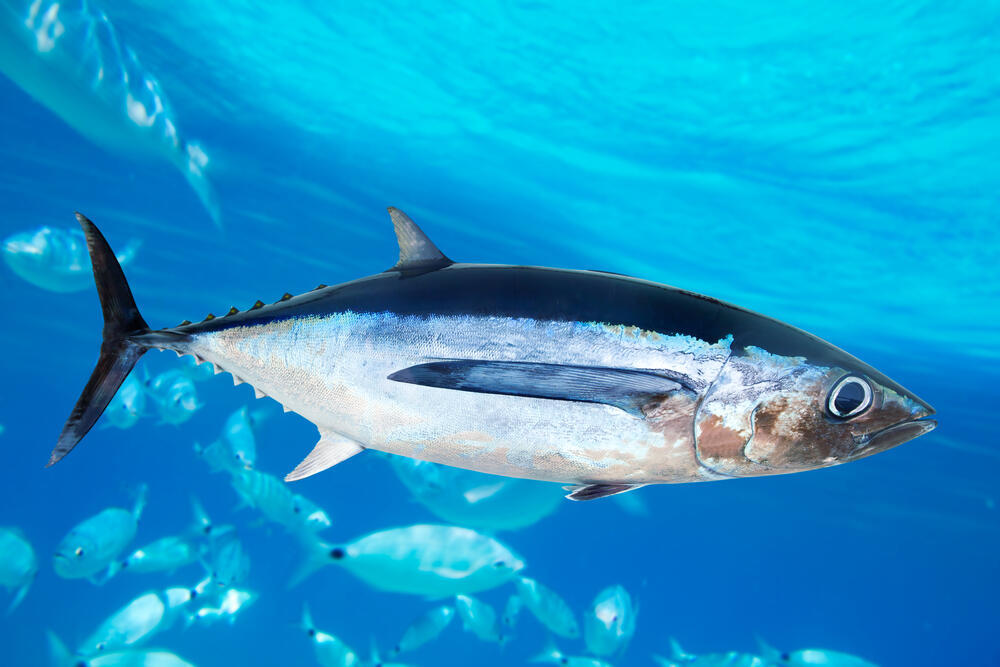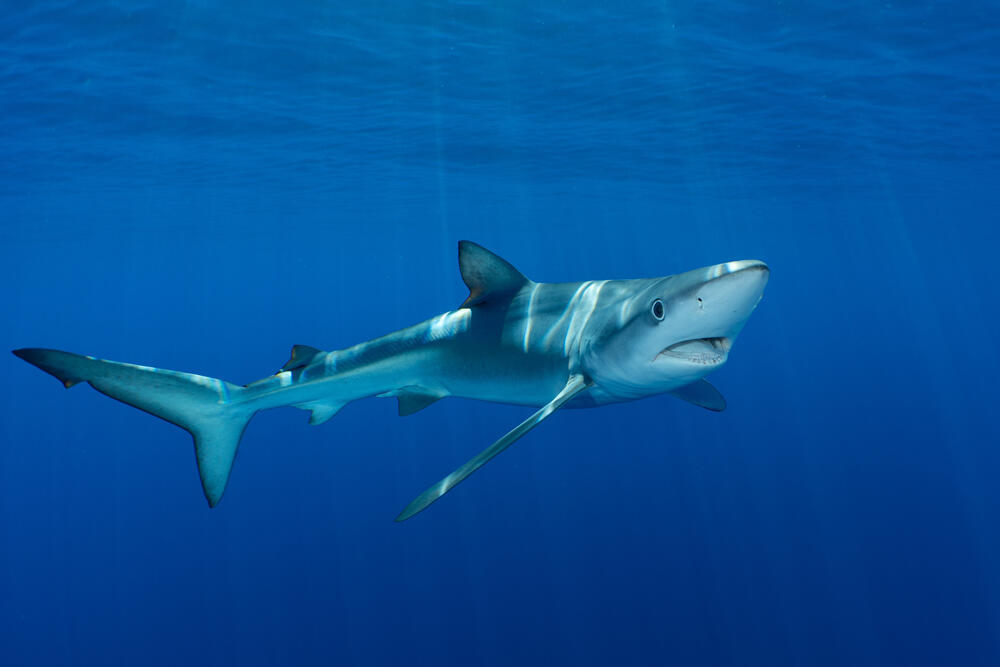Climate change is one of the greatest threats to ecosystems worldwide and has a significant impact on the world's oceans. According to a new study, marine predators are at risk of widespread loss of suitable habitats by the year 2100 due to global warming. The negative effects will also harm the food chain, the fishing industry, and coastal communities.
More stories:
The study, conducted on 12 species of marine predators including sharks, reveals that most of them will be forced to seek new habitats, abandoning their current environment in the northwestern Atlantic Ocean and the Gulf of Mexico by 2100.
These areas are among the fastest-warming regions in the ocean, with water temperatures expected to rise between 1-6 degrees Celsius by the end of the century, signaling climate-driven ecological changes in marine ecosystems. In some cases, iconic species that are economically and ecologically important may lose over 70% of their suitable habitats by 2100.
The study, published in the Science Advances journal, says that as the oceans warm, the distribution of marine predators will likely shift toward the Earth’s poles. The current and anticipated effects of climate change underscore the urgent need for adaptive management and dynamic modeling of ecosystems, as widespread loss of suitable habitats could lead to a redistribution of dominant marine predators in the ocean.
Led by Dr. Camrin Braun, an assistant scientist, and marine ecologist at the Woods Hole Oceanographic Institution, the study identified nearshore areas of the southeastern United States and the mid-Atlantic coast as predicted hotspots of habitat loss for multiple marine species.
The study looked into the impacts on three species of sharks (blue, porbeagle, and shortfin mako), five species of tunas (albacore, bigeye, bluefin, skipjack, and yellowfin), and four species of billfish (sailfish, blue marlin, white marlin, and swordfish).
Although the researchers' model framework couldn't explain the potential adaptability or thermal tolerance by the species, the study's findings suggest a widespread and dominant loss of suitable habitats for nearly all of the ones included in the research.
"Climate change is expected to fundamentally change the status quo for where these species are and how they live. While we don't really understand all the details of what that fundamental change might look like, this study is a good step in the direction of trying to nail down what those changes might be, so that we can do something about it," said Dr. Braun.
The researchers studied three decades of satellite data, an oceanographic model, and biological data to attempt to assess how climate change impacted and will continue to affect fish species in the two focal regions that were examined.
"Our research demonstrates that climate-driven changes are happening now, not from projections of climate change, but based on observed empirical data from the last two decades.” Said study co-author Rebecca Lewison, professor of biology and a conservation ecologist at the Coastal and Marine Institute at San Diego State University, adding that the study highlights the importance of using NASA and other satellite data to understand how a changing ocean is impacting commercially important marine species like swordfish and tunas
Tobey Curtis, a fishery management specialist in the Atlantic Highly Migratory Species Management Division of NOAA Fisheries, said the study not only sheds light on the far-reaching effects of climate change on ocean environments but highlights the need for planned marine conservation and management efforts for these ongoing changes. “If migratory fish are on the move, fishing vessels and coastal communities will also need to adapt. Studies like this will help marine resource agencies be even more dynamic in their decision-making," he said.
These changes included in the study raise concerns over climate change’s social-economic connection and impact on fishing communities. The findings indicate that static measures for fishing management will continue to lose ecological relevance and economic efficiency as species distribution redistributes as climate change continues.
Dr. Braun said that the motivation behind the study is not only to provide a better understanding of the changes expected to occur among marine predator species and marine ecological systems but also to understand how such environmental changes affect human communities and their livelihoods.
"We are doing our best to try to figure out what will happen, so that people can adapt and so that we can develop climate-resilient or climate-ready management policies," Dr. Braun said.





